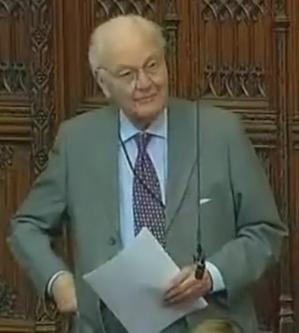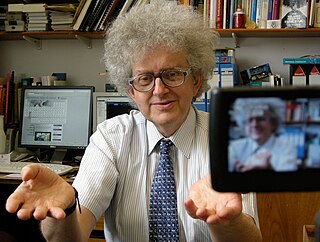FRSC can refer to:
FRSC can refer to:

The Royal Society of Chemistry (RSC) is a learned society in the United Kingdom with the goal of "advancing the chemical sciences". It was formed in 1980 from the amalgamation of the Chemical Society, the Royal Institute of Chemistry, the Faraday Society, and the Society for Analytical Chemistry with a new Royal Charter and the dual role of learned society and professional body. At its inception, the Society had a combined membership of 34,000 in the UK and a further 8,000 abroad. The headquarters of the Society are at Burlington House, Piccadilly, London. It also has offices in Thomas Graham House in Cambridge where RSC Publishing is based. The Society has offices in the United States, on the campuses of The University of Pennsylvania and Drexel University, at the University City Science Center in Philadelphia, Pennsylvania, in both Beijing and Shanghai, China and in Bangalore, India.
Douglas Harold Copp was a Canadian scientist who discovered and named the hormone calcitonin, which is used in the treatment of bone disease.

Jack Lewis, Baron Lewis of Newnham, FRS, HonFRSC was an English chemist working mainly in the area of inorganic chemistry.
The Sir John William Dawson Medal is an award of the Royal Society of Canada(RSC), established in 1985 and named after the society's first president: John William Dawson. The medal was endowed by McGill Graduates Society, the Henry Birks Foundation and RSC, with contributions from Fellows, and staff and friends from McGill University, to commemorate Dawson's term as Principal and to honour “the man who built McGill”.
Fellowship of the Royal Society of Canada (FRSC) is an award granted to individuals that the Royal Society of Canada judges to have "made remarkable contributions in the arts, the humanities and the sciences, as well as in Canadian public life". As of 2020, there are more than 2,000 living Canadian fellows, including scholars, artists, and scientists such as Margaret Atwood, Philip J. Currie, David Suzuki, Stephen Waddams, and Demetri Terzopoulos. There are four types of fellowship:

Richard Henderson is a British molecular biologist and biophysicist and pioneer in the field of electron microscopy of biological molecules. Henderson shared the Nobel Prize in Chemistry in 2017 with Jacques Dubochet and Joachim Frank.

Sir Martyn Poliakoff is a British chemist, working on gaining insights into fundamental chemistry, and on developing environmentally acceptable processes and materials. The core themes of his work are supercritical fluids, infrared spectroscopy and lasers. He is a research professor in chemistry at the University of Nottingham. His group comprises several members of staff, postdoctoral research fellows, postgraduate students and overseas visitors. As well as carrying out research at the University of Nottingham, he is a lecturer, teaching a number of modules including green chemistry.
Richard John Puddephatt, was born 1943 in Aylesbury, England. He is a distinguished university professor in the department of chemistry at the University of Western Ontario, in London, Ontario, Canada. Richard is a former holder of a Canada research chair in material synthesis. He has been studying the fundamental chemistry of gold and other precious metals in the development of new materials for potential applications in health care and electronics. Puddephatt's research interests involve organometallic chemistry related to catalysis and materials science, and he is considered a world expert on platinum and gold chemistry. He has authored two books: The Chemistry of Gold and The Periodic Table of Elements.
Dame Lynn Faith Gladden is the Shell Professor of Chemical Engineering at the University of Cambridge. She served as Pro-vice-chancellor for research from 2010 to 2016.

The University of Toronto Department of Mathematics is an academic department within the Faculty of Arts and Science at the University of Toronto. It is located at the university's main campus at the Bahen Centre for Information Technology.
Fellowship of the Royal Society of Chemistry (FRSC) is an award conferred by the Royal Society of Chemistry (RSC) in the United Kingdom.

Gordon Douglas Slade is a Canadian mathematician, specializing in probability theory.
Norman John ("Jack") Berrill was an English marine biologist. He was born in Bristol and received his BSc degree from the University of Bristol in 1924 and his PhD (1929) and DSc (1931) from University College London. In 1928, he joined the faculty of McGill University in Montreal, where, from 1946 to 1965, he was Strathcona Professor of Zoology. On 20 March 1952 he was named a Fellow of the Royal Society. He was also a member of the Royal Society of Canada (1936) and the American Association for the Advancement of Science (1978).
The Royal Society of Chemistry awards the designation of Honorary Fellow of the Royal Society of Chemistry for distinguished service in the field of chemistry.
Anthony Ronald Entrican Sinclair is a professor emeritus of zoology at the University of British Columbia.

Ian William Murison Smith was a chemist who served as a research fellow and lecturer in the Department of Chemistry, University of Cambridge from 1963 to 1985 and Professor of Chemistry at the University of Birmingham from 1985 to 2002.

Timothy Peter Softley is Pro-vice-chancellor (PVC) for research and knowledge transfer at the University of Birmingham.
Charles James Matthew Stirling FRS, CChem, FRSC is an Emeritus Professor of Chemistry, at the University of Sheffield, in England.
The Longstaff Prize is given to a member of the Royal Society of Chemistry who has done the most to advance the science of chemistry. First awarded in 1881, it was originally conferred by the Chemical Society and known as the Longstaff Medal.